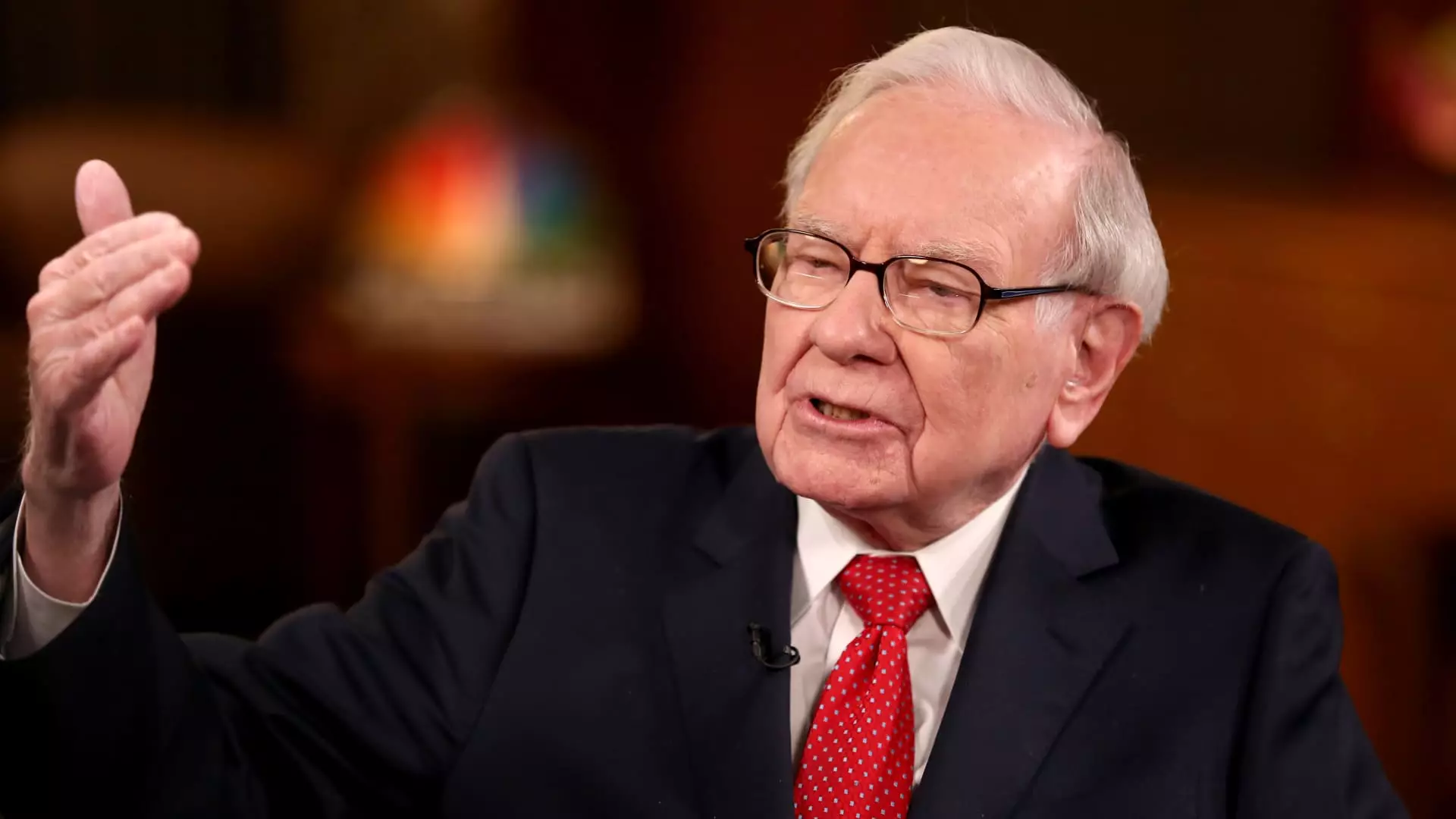In the world of finance, rarely do we encounter a narrative as complex and convoluted as the one currently playing out between Warren Buffett and former President Donald Trump. Recently, a video shared by Trump on his Truth Social platform claimed that the president is intentionally undermining the stock market in a strategic maneuver to lower interest and mortgage rates. Such a theory begs exploration, yet it epitomizes an unsettling blend of misinformation and celebrity influence in politics. Buffett, a titan in the investment sphere, swiftly denounced these unfounded claims, underscoring the perils of misinformation in this age of rapid digital communication.
The director of the video inaccurately attributed statements to Buffett, suggesting he praised Trump’s economic policies, which would be a significant departure from the investor’s well-documented perspectives on tariffs and economic stability. It exposes a troubling trend where influential figures fabricate loyalty or endorsement against a backdrop of political turmoil. While Buffett did not specify which social media posts he was addressing, his conglomerate, Berkshire Hathaway, made it unequivocal that these statements were entirely false. This episode highlights the need for discernment in our digital interactions; an idea bolstered by Buffett’s own remarks about the dangers of viral misinformation.
The Weight of Misinformation
Buffett’s clarification arrives at a consequential time, with platforms like Twitter and TikTok enabling the rapid spread of dubious narratives. The former president’s penchant for manipulating social media, using platforms that amplify his message to disproportionate applause, is unsettling. This incident serves as an alarming reminder that misinformation can gain traction far too quickly, turning financial discussions into sensationalist narratives that distort reality. Watching the world’s investing infrastructure teeter under the weight of dubious privatized commentary is indeed disconcerting.
Furthermore, Buffett’s assertion of misinformation is accentuated by the consequences of economic policy. His previous criticisms of tariffs as “an act of war” are well-documented, painting a picture of a man consistently advocating for stability in a volatile landscape. His commitment to transparency and accurate reporting serves as a beacon amidst the chaos. The implication is clear: when economic decisions are intertwined with political theatrics, the potential for misinformation increases exponentially, generating instability that can resonate through markets and industries.
Buffett’s Legacy and Economic Prudence
As one of the most respected figures in finance, Warren Buffett carries a legacy marked by astute economic insights and strategic investments. Delving deeper into his statements reveals a consistent pattern of promoting free trade and rational economic sensibilities. The recent tariffs imposed during Trump’s administration starkly contrast with Buffett’s pro-free trade stance. His pessimism during trade wars underscores a broader concern over the global economy, calling into question the viability of using job creation or domestic policy as a bait for political credibility at the expense of broader market health.
In this intense political narrative, Trump’s approach to economic policy appears as a gamble rather than a strategic vision. Emphasizing short-term gains through potentially destructive paths like tariffs risks alienating the very foundations that uphold economic growth. Buffett, as a voice of reason, advocates for long-term stability, arguing that a world oriented toward free trade holds opportunities for all. However, this sentiment is often drowned out in favor of immediate, sensational responses that incentivize chaos rather than clarity.
A Year of Caution and Strategic Growth
Significantly, Buffett’s recent maneuvers reflect caution that should resonate through the halls of financial institutions. With Berkshire Hathaway holding unprecedented cash reserves exceeding $300 billion, the focus remains on long-term profitability and stability. Buffett’s strategy of divesting from stocks indicates a broader perspective aimed at weathering economic storms rather than succumbing to transient trends or panic-driven decisions, which often characterize political cycles.
As he prepares for Berkshire’s upcoming annual meeting, Buffett demonstrates a healthy skepticism towards reckless economic policies that could destabilize markets. The contrast between the approaches of Buffett and Trump is profound—one rooted in evidence-based economic strategy, the other steeped in sensationalism and speculation. To witness these giants of finance and politics at odds invites scrutiny and critical analysis, particularly in times of global economic uncertainty.
In the end, we find ourselves grappling with powerful narratives that shape our understanding of finance. Misinformation persists, yet discerning voices like Buffett’s attempt to steer us back to rationality and reason. The chasm between political rhetoric and economic reality remains contentious, ensuring that the discourse surrounding figures like Buffett and Trump will require our utmost attention and analysis.

